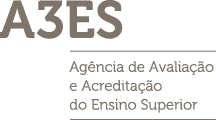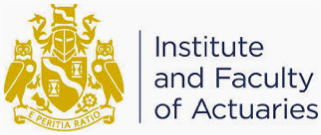
The main objective of the degree in Applied Mathematics for Economics and Management is to combine a basic education in Economics and Management with a solid foundation in Mathematics.
This degree prepares professionals who can efficiently equate and solve problems in the areas of economics and management, using mathematical tools and the most modern computational resources.
To do what companies are looking for, as you will gain the most solid quantitative knowledge and will know how to apply it to concrete situations.
To use mathematical tools to formalise real problems and respond to the major challenges facing the economy and companies.
To solve problems using programming.
To identify which areas you wish to specialise in, either when working for a company, or if you choose to pursue a career in research.
… to keep on learning!



ISEG’s degree in Applied Mathematics for Economics and Management prepares its students to respond effectively and efficiently to the demands and challenges of the national and international labour market.
The rapid and successful integration of MAEG-EN graduates into the labour market – none are known to be unemployed – is a clear sign that this is a degree that responds particularly well to the needs of the market in a wide range of sectors: banks, insurance companies and other financial institutions, consultancy firms and public bodies, universities, and other research centres.
The degree in MAEG-EN also opens up excellent prospects for continuing one’s studies to 2nd Cycle level in subject areas such as Actuarial Science, Economic Decision-making, Econometrics, Monetary and Financial Economics, Management, Finance, and Financial Mathematics.
| Year 1 * | Semester |
|---|---|
| Economics I | 1 |
| Linear Algebra | 1 |
| Mathematical Analysis I | 1 |
| Principles of Management | 1 |
| Statistical Laboratory | 1 |
| Economic and Business History | 2 |
| Economics II | 2 |
| Mathematical Analysis II | 2 |
| Mathematical Programming I | 2 |
| Programming Languages | 2 |
| Year 2 | Semester |
|---|---|
| Macroeconomics I | 1 |
| Mathematical Analysis III | 1 |
| Mathematical Programming II | 1 |
| Microeconomics I | 1 |
| Probability | 1 |
| Complex Analysis and Differential Equations | 2 |
| Financial Mathematics | 2 |
| Microeconomics II | 2 |
| Operational Research Topics | 2 |
| Statistics | 2 |
| Year 3 | Semester |
|---|---|
| Accounting I | 1 |
| Econometrics I | 1 |
| Stochastic Processes and Applications | 1 |
| 2 or 3 Electives | 1 |
| Cost Accounting | 2 |
| Data Science and Forecasting | 2 |
| Econometrics II | 2 |
| Numerical Analysis | 2 |
| 1 or 2 Electives | 2 |
Minimum application grade: 100 points (out of 200) based on:
Required entry exams:
*Some international qualifications can be automatically recognised as equivalent. Please check with the Undergraduate Office for more information.
| Students from | First Year | Second Year | Third Year |
| Within the European Union | € 697 | € 697 | € 697 |
| Outside the European Union | € 7,500 | € 7,500 | € 7,500 |
Financial restrictions should never come in the way of your access to higher education, and that is why we believe in providing equal opportunities for everyone.
If you are not an EU, EEA, or Swiss citizen, you need a Student VISA.
Once you have decided to join the bachelor programme and paid the 1st tuition fee to secure your place, you can issue the acceptance letter on the FENIX Portal. This document will be needed later to apply for a Student Visa.
The student visa must be requested at the nearest Portuguese Embassy or Consular Office in the country of origin.













